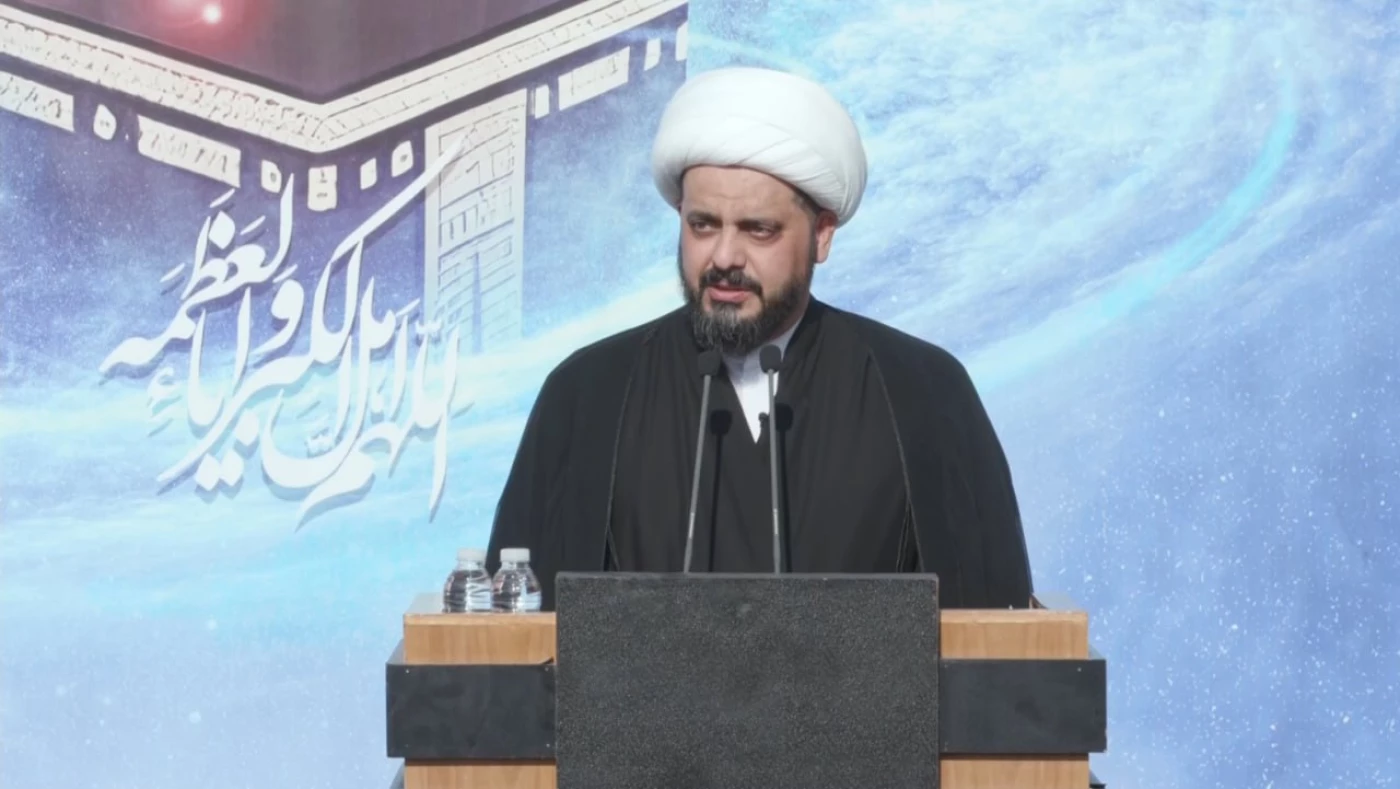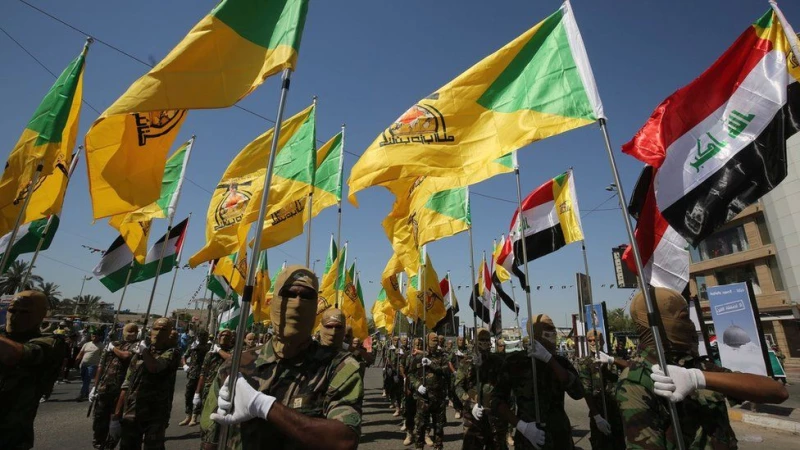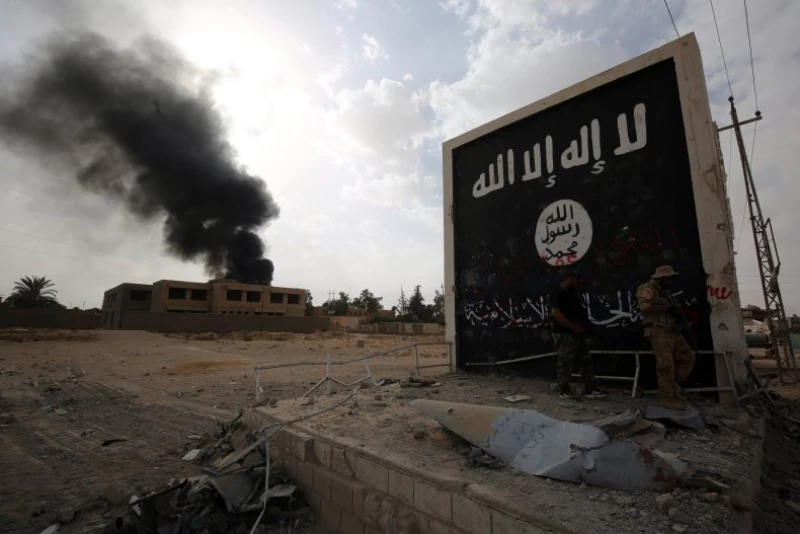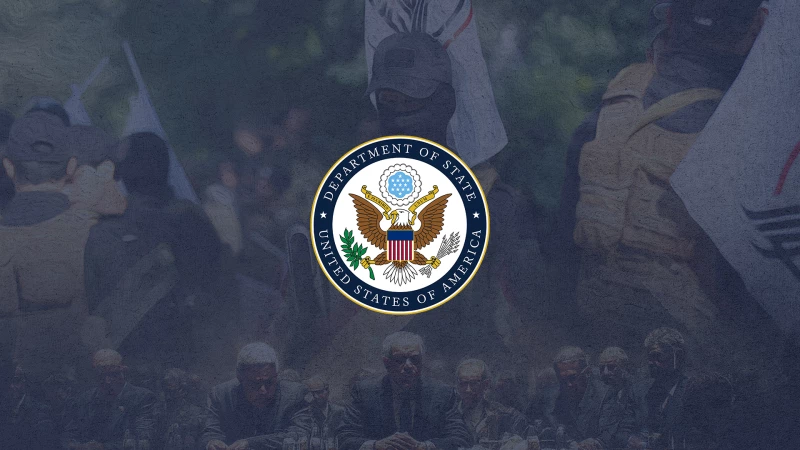ERBIL, Kurdistan Region of Iraq - Qais al-Khazali, secretary-general of the Iran-backed Asaib Ahl al-Haq (AAH), on Saturday blamed Erbil for ongoing salary issues with Baghdad, citing inaccurate data and claims that have been repeatedly refuted by the Kurdish authorities.
The Iraqi finance ministry in late May informed the Kurdistan Regional Government (KRG) that it will suspend funding the Region for the rest of 2025, claiming that Erbil had already exhausted its share of the annual budget.
Baghdad’s decision, deemed “a political decision” by Kurdish authorities, jeopardizes the livelihoods of the Region’s over one million salaried workers for the next eight months.
In an Eid sermon on Saturday, Khazali stated that Iraq has enough resources to “meet the needs of all its people,” including citizens in the Kurdistan Region, accusing the KRG of not cooperating with the federal government in handing over revenues and oil, and using it as a pretext for depriving civil servants of their salaries.
“The responsibility for running the state is one that is inclusive and shared, and does not fall on one party over another… the KRG is not handing over oil revenues to Baghdad and is selling them for a cheap price,” said Khazali.
Khazali’s comments have already been refuted by the KRG natural resources ministry, which said in a Thursday statement that the Region has sent “more than 11 million barrels of oil” to the federal government over a period “exceeding five months,” adding that the Iraqi side has not sent the Kurdistan Region “a single dinar in return,” deeming it a “clear violation” of Baghdad’s financial obligations and agreements signed between the two sides.
The ministry also addressed the allegations of oil smuggling, calling it an attempt to “divert attention from the widespread smuggling and corruption occurring in other parts of Iraq,” citing “local and international reports that expose the extent of waste and corruption.”
The AAH chief also claimed that “the problem is the majority of the [Kurdistan] Region’s officials are not convinced of a unified Iraq.”
Kurds in Iraq have cooperated with Baghdad government since 2005 in accordance with the federal system but have never shied away from voicing their aspirations for an autonomous Kurdish state, as evidenced by the 2017 referendum which saw an overwhelming 92 percent of voters casting ballots in favor of independence.
Additionally, KRG officials have frequently criticized Iraq for not fully implementing federalism in the country, and called for respecting the Region’s federal status within the framework of the Iraqi constitution; a call that was echoed by US top officials during Kurdistan Region Prime Minister Masrour Barzani’s May visit to Washington.
The KRG has also repeatedly urged the Iraqi federal government not to use political issues between the two governments as an excuse to punish the Kurdistan Region’s civil servant salaries by withholding salaries.
Khazali went on to claim that the poverty rate in the Kurdistan Region was higher than that in southern and central Iraq.
The Iraqi federal Ministry of Planning in February released data about poverty rates across some provinces in the country based on the general population census held three months prior, which showed the lowest rates of poverty in Iraq were recorded in the Kurdistan Region’s two largest provinces, Erbil and Sulaimani, with seven and eight percent respectively.
The poverty rate in some southern and central Iraqi provinces were more than three times that number, reaching 40 percent in Muthanna and 35 percent in Babil.
Years of conflict and unresolved issues between Erbil and Baghdad, and economic sanctions and pressure on Erbil by federal authorities, have pushed employees in the Region to live from paycheck to paycheck.
Kurdistan Region leaders on Thursday sent out celebratory messages on the occasion of Eid al-Adha, expressing regret that the holiday has been marred by Baghdad's decision to cut the Region's civil servant salaries; a measure they labeled a “collective punishment” of the Region’s citizens.


 Facebook
Facebook
 LinkedIn
LinkedIn
 Telegram
Telegram
 X
X



